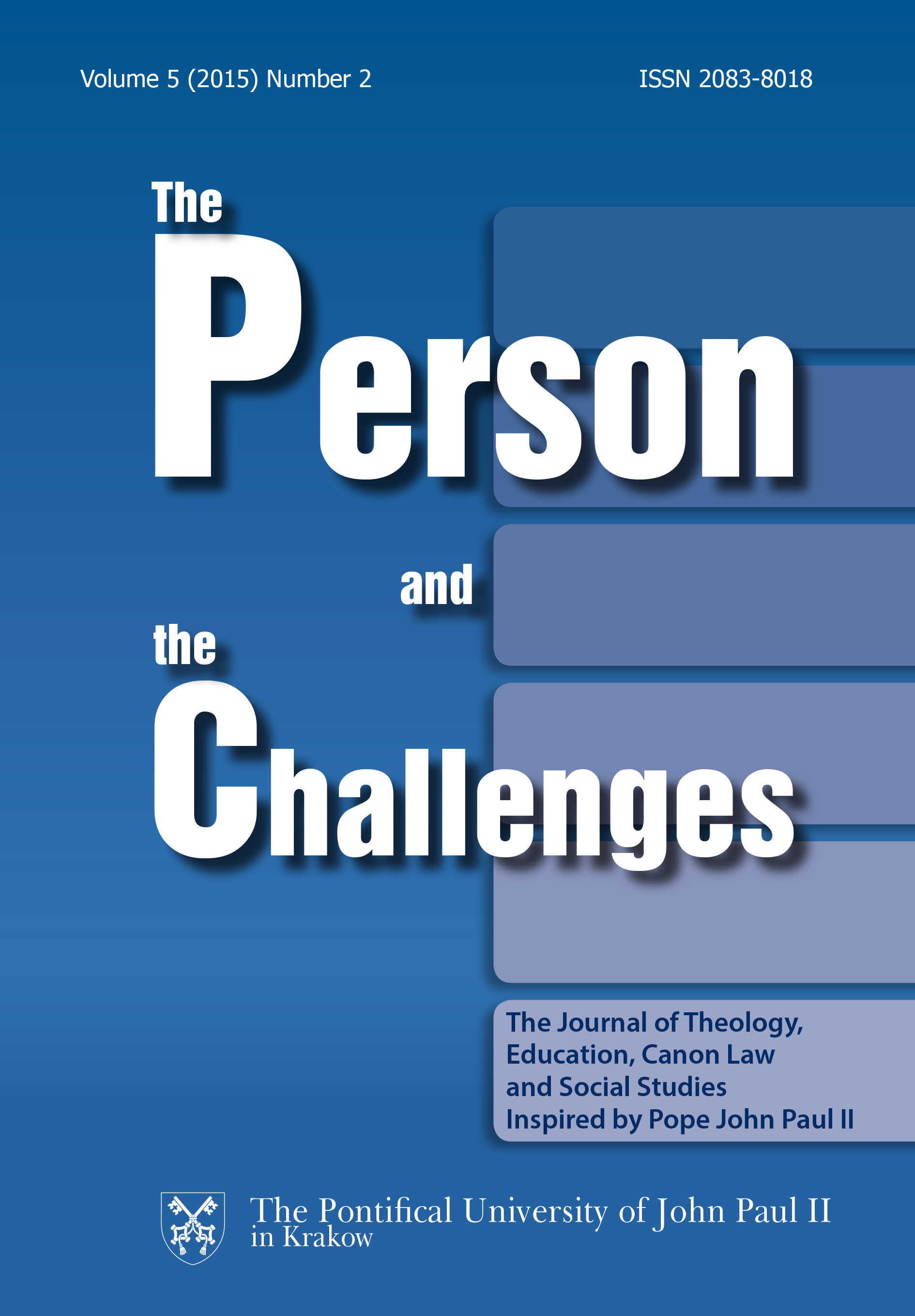Empathic parenting and child development
DOI:
https://doi.org/10.15633/pch.1525Słowa kluczowe:
Empathy, early development, parent-child relationships, sense of self, religious experienceAbstrakt
Our experience of the world and life is associated with our sense of ‘self’, which begins to grow in the preverbal period through the child’s primary relationships with his/her parents. Such relationships should be optimal and full of true, genuine and deep contact, marked with a parent’s empathic responsiveness. Empathic parents encourage positive development, while lack of empathy is many times associated with dysfunctional patterns of behaviour in later life. Empathy is a critical factor for the healthy development of a child, especially for the growth of a creative and genuine sense of ‘self’, which in adulthood is essential for a healthy and vibrant personality, one who is capable of coping with life and living empathic relationships. Empathy in the narrowest sense of the word is the ability to share and comprehend the feelings and thoughts of another, e.g. the ability to have insight into experiencing. In a broader sense, it is the basic dynamics of relationships that fully enable us to feel safe and accepted with others and thereby give us space for growth and development.Bibliografia
Baron-Cohen S., The essential difference: The truth about male and female brain, New York 2003, Basic Books.
Belford Ulanov A., Finding Space, Louisville 2001, Westminster John Knox Press.
Clark A. J., Empathy in counseling and psychotherapy, New Jersey 2007, Lawrence Erlbaum Associates.
Feshbach N. D., Empathy: The formative years: Implications for clinical practice, in: A. C. Bohart, L. S. Greenberg (eds.), Empathy reconsidered: New directions in psychotherapy, Washington 1997, American Psychological Association, p. 33–59.
Feshbach N. D., The construct of empathy and the phenomenon of physical maltreatment of children, in: D. Cicchetti, V. Carlson (eds.), Child maltreatment, Cambridge 1989, Cambridge University Press, p. 349–373.
Feshbach N. D., Parental empathy and child adjustment/maladjustment, in: N. Eisenberg, J. Strayer (eds.), Empathy and its development, Cambridge 1987, Cambridge University Press, p. 271–291.
Flanagan O., Consciousness reconsidered, Cambridge 1992, A Bradford Book, The Mit Press.
Gostečnik C., Inovativna relacijska družinska terapija, Ljubljana 2011, Brat Frančišek, Teološka fakulteta in Frančiškanski družinski inštitut.
Gostečnik C., Sodobna psihoanaliza, Ljubljana 2002, Brat Frančišek in Frančiškanski družinski inštitut.
Guttman H. A., Empathy in families of women with borderline personality disorder, anorexia nervosa, and a control group, “Family Process” 39 (2000) 3, p. 345–358.
Kohut H., How does analysis cure?, Chicago 1984, The University of Chicago Press.
Kompan Erzar L. K., Odkritje odnosa, Ljubljana 2001, Brat Frančišek in Frančiškanski družinski inštitut.
Kompan Erzar K., Poljanec A., Rahločutnost do otrok, Ljubljana 2009, Brat Frančišek in Frančiškanski družinski inštitut.
Murray L., Contributions of experimental and clinical perturbations of mother-infant communication to the understanding of infant intersubjectivity, in S. Bråten (ed.), Intersubjective communication and emotion in early ontogeny, New York 1998, Cambridge University Press, p. 127–143.
O’Hara M., Relational empathy: Beyond modernist egocentrism to postmodern holistic contextualism, in: A. C. Bohart, L. S. Greenberg (eds.), Empathy reconsidered: New directions in psychotherapy, Washington 1997, American Psychological Association, p. 295–320.
Rijavec Klobučar N., The role of spirituality in transition to parenthood: Qualitative research using transformative learning theory, “Journal of religion and health” (2015), published online (in press).
Rizzutto A. M., The Birth of the Living God, Chicago 1979, The University of Chicago Press.
Rupnik M. I., Reči človek: Oseba, kultura velike noči, Koper 2001, Ognjišče.
Schore A. N., Affect regulation and the repair of the self, New York 2003, W. W. Norton & Company.
Simonič B., Empatija, Ljubljana 2010, Brat Frančišek in Frančiškanski družinski inštitut.
Simonič B., Poljanec A., Starševstvo kot prostor razvoja empatije pri otroku (Parenthood as the Place for Developing the Empathy of a Child), “Bogoslovni vestnik” 72 (2012) 1, p. 113–122.
Simonič B., Rahne Mandelj T., Novšak R., Religious-related abuse in the family, “Journal of Family Violence” 28 (2013) 4, p. 339–349.
Stern D. N., The interpersonal world of the infant, New York 1985, Basic Books.
Stolorow R. D., Brandchaft B., Atwood G. E., Psychoanalytic treatment: An intersubjective approach, Hillsdale 1987, The Analytic Press.
Thompson E., Empathy and consciousness, “Journal Of Consciousness Studies” 8 (2001) 5, p. 1–32.
Winnicott D. W., Playing and Reality, London 1971, Routledge.
Zahn-Waxler C., The development of empathy, guilt, and internalization of distress, in: R. J. Davidson (ed.), Anxiety, depression, and emotion, New York 2002, Oxford University Press, p. 222–265.
Pobrania
Opublikowane
Numer
Dział
Licencja
Prawa autorskie (c) 2015 Barbara Simonič

Utwór dostępny jest na licencji Creative Commons Uznanie autorstwa 4.0 Międzynarodowe.
Autorzy publikujący w czasopiśmie udzielają jego wydawcy zgody o następującej treści:
- Autor zachowuje autorskie prawa majątkowe do utworu, a jednocześnie udziela wydawcy czasopisma zgody na jego pierwszą publikację w wersji drukowanej i wersji online na licencji Creative Commons Uznanie autorstwa 4.0 Międzynarodowe oraz zgody na wykonywanie opracowań, w tym przekładów.
- Autor ma możliwość udzielania zgody niewyłącznej na opublikowanie utworu w wersji, która ukazała się w czasopiśmie (np. zamieszczenia go w repozytorium instytucjonalnym lub opublikowania w książce), wraz z informacją o jego pierwszej publikacji w czasopiśmie.
- Autor może umieścić swój utwór online (np. w repozytorium instytucjonalnym lub na swojej stronie internetowej) jeszcze przed zgłoszeniem utworu do czasopisma.

